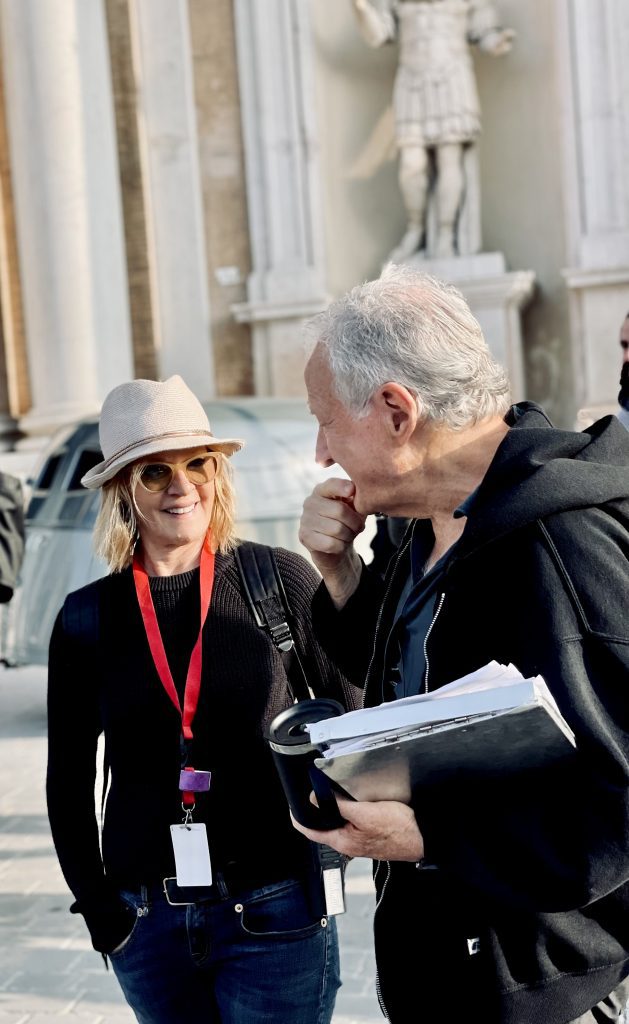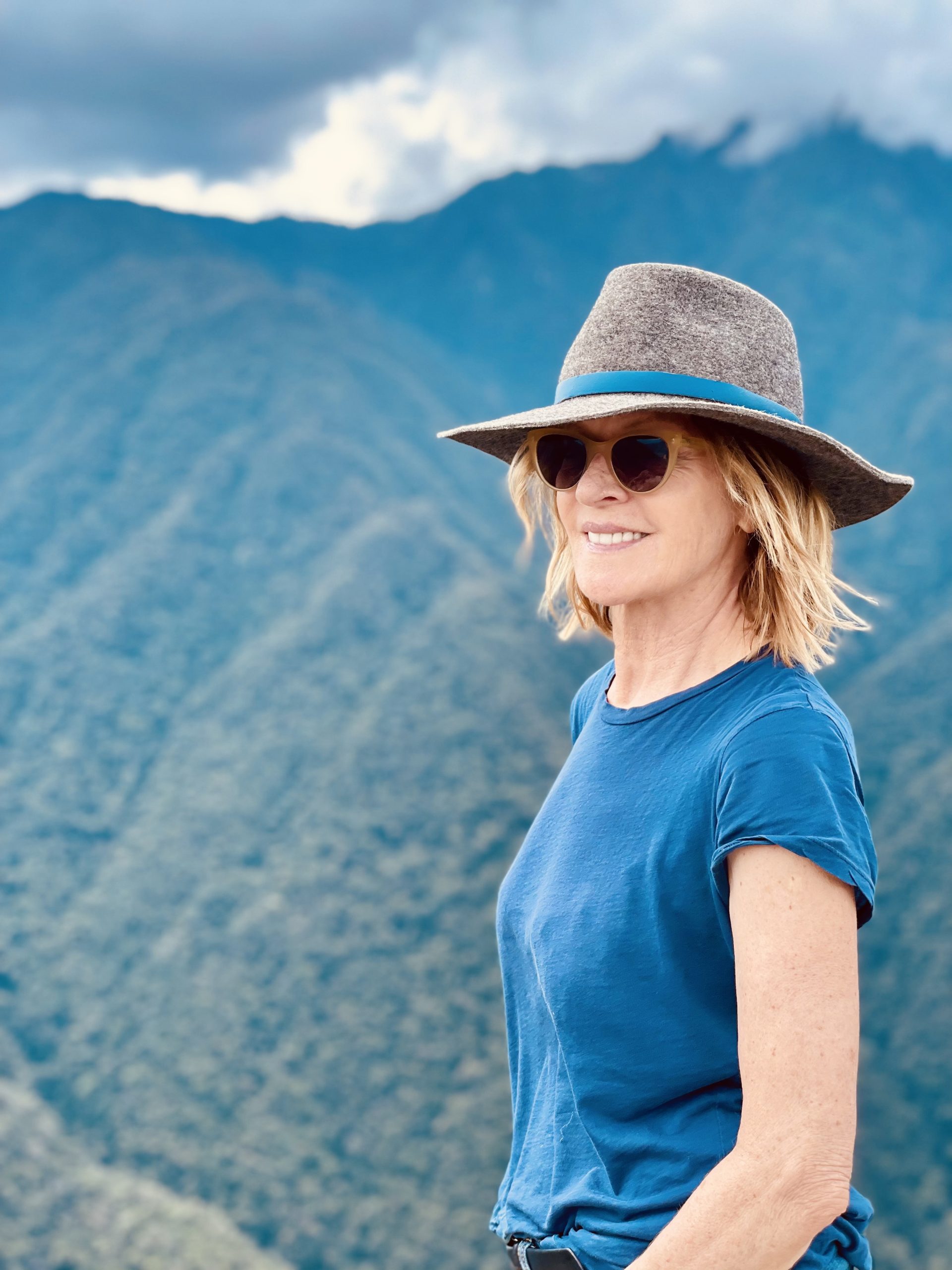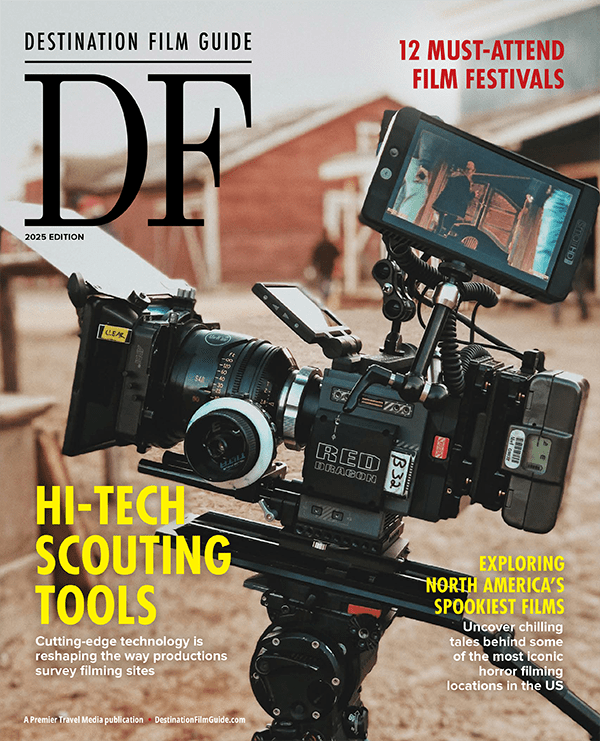Janice Polley, with four decades of experience as a location scout and manager, shares invaluable tips on navigating danger while recounting stories from working on movies around the world.
By Tinder Kiely
If you’ve ever watched a Tony Scott or Michael Mann movie, you can probably picture a chaotic scene, with high-paced action and a feeling of being spirited into a world that cares little for slow and easy. Setting plays an instrumental role in that feeling, and Janice Polley is the woman behind these locations. In fact, she has scouted and managed locations for every Scott film and a majority of Mann’s. Throughout her career, Polley managed to shut down most of downtown Los Angeles and major highways in Hong Kong, has won arguments with the Secret Service, and convinced LAX to allow her to film during the week that the Unabomber threatened to bomb. Her impressive resume includes films such as The Tenet, Heat, Man on Fire, Collateral, and most recently, Ferrari.
What’s it like scouting and managing potentially dangerous or volatile locations?
My golden rule is that I respect every single neighborhood I’m going into, regardless of what is happening. I can’t condone what’s going on there, but even on Collateral in downtown Los Angeles, when we were working in areas where the neighborhoods are probably controlled by gangs, it’s about respect. I’m coming into your neighborhood, and it’s not something that I know you normally do, but I’d like to meet you. Let’s talk about how we can make this work for both of us, so that you can continue doing what you’re doing, but I can keep the crew safe. That happened when I was filming in Bogota, Colombia, in Shanghai, and in Japan with the Yakuza.
Wherever you go, it’s always about respect, regardless of what activity is happening in the criminal world there. We’re just coming in for two or three days. Can we work together? That’s how we do it.
How do you convince major metropolitan areas like downtown LA or Hong Kong to shut down and allow you to film?
It takes a lot of pushing and not taking no for an answer. We were shutting down the main highways in Hong Kong, and it was constantly just a no. And it was very frustrating for me because obviously I don’t know any Cantonese. I would go with the location department and we’d be sitting across all these officials and it would be just constant Cantonese. But I could hear the no. It was frustrating for me because I couldn’t give them the nuance of language, because if you know the language, you can charm, but there was none of that in Hong Kong.
So we just kept at it. When you work with a director that has a lot of connections, you just go to the top, and you keep fighting. Eventually, there was compromise. It all starts to become a challenge for me. I think, okay, now I’m gonna get this—I’m not gonna have a government person say no to me. It’s very rewarding.
In a movie like Tenet, where you filmed in seven different countries, how do you balance managing all these different locations for just one project?
I had an incredible team. Each country I would have a great location manager that was local to that country. And you just keep all the balls up in the air. I always have to give credit to my great team. You just kind of stay on top of it, and stay just one step ahead. That was challenging because it was the first time I worked with Chris Nolan, and it was a lot of locations, but obviously you want to give him whatever he wants. Chris was very respectful, I loved working with him, and it was a great movie, but it was challenging because it was in so many countries.
We actually did eight countries in seven days. It was militaristic in its timing. We leave, we scout, we get on the plane, we scout. We were in Mumbai, India for less than 24 hours. We arrived at two o’clock in the morning, and we departed at 10 o’clock that next night. But it was incredible that we were able to do that.

Polley with Michael Mann on the set of Ferrari
What do you enjoy most about your job?
I love the scouting part of it, coming up with ideas to give the director that are then shown in the movie. But I also like the challenge of getting things done that have never been done before. So I like both aspects of it.
What are some of the most important lessons you’ve learned throughout your time working in the industry?
To never take no for an answer. To never be late. And to just really, you know, just sort of having a hard work ethic. And I learned that early on. If someone says no then that means, okay, you’re just gonna make me fight more.
Can you share a favorite project you’ve worked on and why?
It’d be very hard. Of course, all the movies I did for Tony Scott are special, as are all the ones I’ve done with Michael Mann. I mean, they all are—every single movie that I work on, I learn from that filmmaker. I spent a lot of time with Tony. I did every single one of his movies. And he was such a kind, gentle person. Ali, Man on Fire, and Tenet took me to countries that really opened up the world for me, so I would say those three were probably my most favorite.
How do you feel about the advancements of AI in location filmmaking?
For me, it doesn’t give me pause for concern because I find it funny. Probably about eight years ago, everybody thought that with advancements in visual effects, nobody’s gonna work again because they’re just gonna go to a stage and everything will be visual effects. And there were a lot of visual effects movies, but I never stopped working. So I’m not really worried about AI either because people still want realism. And the film that I’m working on right now, they’re kind of shying away from going to the visual effect world and want real locations. I sort of feel that we’re kind of going full circle again.
Maybe I can say this because I’ve had a career, but I don’t feel it will affect locations. I don’t know how it will affect the whole industry though. That would be maybe a cause for concern, but I don’t think AI will replace things in the way that everybody seems to think that it will.
Do you have a dream movie you’d like to work on before you retire?
I’d love to do something that allows me to scout a lot of Africa. I only filmed on the continent once, for Ali in Mozambique and Ghana, so a movie that gives you a scope of all of these great places in the continent of Africa. And not just South Africa, but somewhere exciting that tourists don’t really go to. That would be my dream.
What advice can you give to someone who wants to get into location scouting?
Keep pursuing your dream, and have a great attitude. I just worked with somebody who is 22 or 23, she was helping with the drone. It was so refreshing to see her get so excited from watching, trying, and learning from her mistakes. Don’t be afraid of making a mistake—everybody does it. If you make a mistake, just be honest about it. Work hard, keep your faith up, your vision up, and just keep trying and learning. I’ve been doing this for a really long time, and I still learn from every movie.


